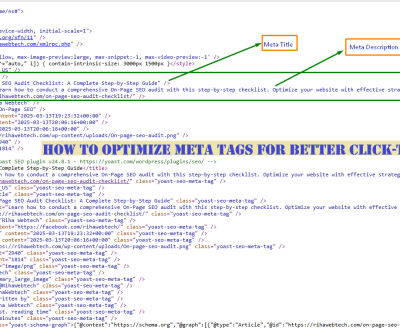What is Keyword Stuffing in Content Writing?
Keyword stuffing is a search engine optimization (SEO) technique in which an excessive amount of keywords are added to the content of a website or web page. This type of SEO practice is used to try and gain higher rankings on search engines. The idea behind keyword stuffing is that if there are more relevant terms for a particular topic, then it will appear higher in the results due to increased relevance.
However, this practice can actually have negative effects on your site’s ranking as well as reputation with search engines such as Google and Bing. By overstuffing content with irrelevant keywords, you may be flagged for spam by major search engines which could lead to lower rankings or even removal from their index entirely.
Keyword stuffing is a black hat SEO tactic that involves the overuse of keyword phrases in content writing. This practice, which was once common among search engine optimizers, involves cramming as many keywords as possible into blog posts and webpages without regard for readability or relevance to the topic at hand. The goal is to trick search engines into ranking these pages higher than they otherwise would.
However, this practice does not benefit users and can actually hurt your rankings if you are caught by Google’s algorithms.
What is Keyword Stuffing, Why It’s Bad, and How You Can Avoid it
Keyword Stuffing Examples
Keyword stuffing is a search engine optimization technique in which keywords are used excessively throughout website content and page titles. It has become increasingly common for SEO companies to use this practice, but it can be dangerous as Google penalizes sites that engage in keyword stuffing. Some examples of keyword stuffing include using the same word or phrase multiple times within a single sentence, repeating words over and over again on a page, and including hidden text with lots of keywords on a website.
How to Avoid Keyword Stuffing
Keyword stuffing is an outdated SEO practice that involves cramming as many keywords into a website or blog post as possible. This practice can result in penalties from search engines, so it’s important to avoid keyword stuffing for the best SEO results. To avoid this issue, focus on creating high-quality content with natural language and use your target keywords sparingly throughout your text.
Additionally, using synonyms of key phrases can help keep your writing sounding natural while still incorporating relevant terms.
What is Keyword Stuffing in Seo
Keyword stuffing is the practice of overusing keywords in a website or blog post in an attempt to manipulate search engine rankings. It involves repeating words and phrases too often within a piece of content, which can make it difficult for readers to understand. In addition, keyword stuffing is considered unethical by search engines and can result in a site being penalized or even de-indexed from their results pages.
Why is Keyword Stuffing Bad
Keyword stuffing is an outdated SEO practice that involves jamming as many keywords into a piece of content as possible. This technique used to be seen as a way to optimize content for search engine rankings, but it’s actually bad for your website because search engines like Google now consider it spammy and penalize websites that use this tactic. Not only can keyword stuffing negatively affect your site’s ranking in SERPs, but it also makes the user experience on your website unpleasant since visitors are likely to encounter awkward sentences filled with odd-looking terms.
Is Keyword Stuffing Good for Seo
Keyword stuffing is an outdated SEO practice that involves cramming as many keywords into a webpage as possible. This approach does not work for SEO anymore and can actually have negative effects on your search engine rankings. Google has become very adept at detecting when webpages are keyword-stuffed, and will penalize pages that engage in this type of activity.
It’s best to focus on creating quality content with natural keyword usage instead of trying to game the system with excessive use of keywords.
Keyword Stuffing Tool
Keyword stuffing tools are designed to help maximize the visibility of a website by strategically placing keywords throughout webpages. These tools allow users to quickly and easily identify which words should be used when creating content, as well as how often those words should appear on each page. They can also analyze existing content for keyword density, allowing users to make adjustments if needed in order to improve search engine optimization (SEO).
Ultimately, keyword stuffing tools are an essential part of any successful SEO strategy and can provide websites with a major boost in traffic and visibility.
Keyword Stuffing Black Hat
Keyword stuffing is a black hat SEO tactic that involves the repeated use of certain words or phrases with the intention of manipulating search engine rankings. This unethical practice consists of loading web pages with irrelevant and often unrelated keywords in an attempt to trick search engines into thinking they are more relevant than they actually are. It can have severe consequences for your website, such as being penalized by Google or even removed from its index altogether, so it should be avoided at all costs.
Keyword Stuffing Amazon
Keyword stuffing on Amazon is defined as the intentional use of irrelevant or repeated words in product titles, descriptions, and bullet points. It’s a practice that violates Amazon’s guidelines and can result in suspension of seller accounts. Keyword stuffing has become increasingly popular over the years due to its ability to increase search engine rankings for certain products and phrases.
However, it needs to be done carefully as Amazon may penalize sellers who are found to be engaging in keyword stuffing.

Credit: learn.g2.com
What is Keyword Stuffing in Content?
Keyword stuffing is a black hat SEO technique used to manipulate search engine rankings by cramming as many keywords as possible into content on a website. It works by inserting excessive amounts of words and phrases that are completely unrelated to the topic or have no relevance to the page’s content in an attempt to increase its ranking for particular queries in search engines. This kind of practice not only harms your website’s reputation, but it can also be penalized by Google or other major search engines like Bing and Yahoo, resulting in lower search engine rankings or even being removed from their index altogether.
Keyword stuffing can take many forms, including repeating keywords multiple times throughout content; using irrelevant keywords; adding numerous meta tags with keyword-rich descriptions; using hidden text and white space elements containing unnecessary words; creating doorway pages with little content but high keyword density; writing articles that contain nothing more than lists of related terms which don’t provide any value for readers whatsoever.
What is Keyword Stuffing Example?
Keyword stuffing is a blackhat SEO technique in which webmasters add an excessive number of keywords into their website content, in an attempt to manipulate search engine rankings. An example would be if a page was written with the same keyword phrase repeated over and over again throughout the text. This practice can be easily spotted by visitors to the site and will often cause them to leave right away because it looks unnatural and irrelevant.
Google also takes this tactic very seriously, as they want to provide relevant results for users; therefore using keyword stuffing techniques could result in ranking penalties or have your site removed from their index altogether. Therefore, it’s best for webmasters to stay away from such unethical tactics when attempting to improve their website’s visibility online!
What is Keyword Stuffing And Why is It Bad?
Keyword stuffing is a black hat SEO technique where content creators overload webpages with keywords in an attempt to manipulate search engine rankings. The practice of keyword stuffing involves loading a webpage with keywords or numbers in an attempt to manipulate the search engines and gain higher ranking positions on SERPs (Search Engine Results Pages). This tactic often involves repeating the same keyword over and over again within the text, without providing any additional value to the user.
By doing this, they are attempting to artificially increase their website’s relevance for specific key phrases that would normally be considered irrelevant by the search engine algorithms. Keyword stuffing can have serious consequences for your website as it undermines trust from both users and search engines alike, leading to decreased clickthroughs and even higher bounce rates when visitors land on your page. In addition, if caught by Google’s algorithm updates such as Panda or Penguin, you could find yourself penalized or banned completely from their indexing system altogether.
Ultimately, keyword stuffing does more harm than good so it’s best avoided at all costs!
What is Keyword Placement in Content Writing?
Keyword placement is an important part of content writing. It refers to strategically placing specific keywords throughout your content in order to improve its search engine rankings and make it easier for readers to identify what the content is about. Keywords should be placed naturally within the text, rather than crammed into every sentence or forced into unnatural phrases.
The most effective keyword placements are usually found at the beginning of a sentence or paragraph, as well as at the end; however, they can also appear anywhere else throughout the text where appropriate. Additionally, when using multiple related keywords in one piece of content (known as “long-tail” keywords), you should consider mixing up their positioning so that each appears more than once in different parts of your article or post. Lastly, keep in mind that including too many keywords will not only hurt your SEO performance but may also negatively impact how readable and enjoyable your work becomes for readers – so be sure not to overdo it!
Conclusion
In summary, keyword stuffing is an unethical SEO practice of adding too many keywords in content writing. It not only affects the readability of a piece but also leads to search engine penalties and damage to your online reputation. Thus, it should be avoided at all costs as it has no benefit for any website or business.
Content writers must understand the importance of using quality keywords in their writing instead of just focusing on quantity.
About us and this blog
We are a digital marketing company with a focus on helping our customers achieve great results across several key areas.
Request a free quote
We offer professional SEO services that help websites increase their organic search score drastically in order to compete for the highest rankings even when it comes to highly competitive keywords.
Subscribe to our newsletter!
More from our blog
See all postsRecent Posts
- How to Add an Internal Link in WordPress April 11, 2025
- How to Optimize Meta Tags for Better Click-Through Rates (CTR): A Comprehensive Guide April 11, 2025
- On-Page SEO Audit Checklist: A Complete Step-by-Step Guide March 13, 2025










